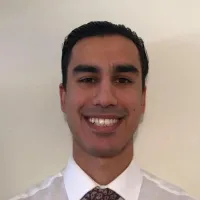
Civil Disobedience: The New Hippocratic Oath
In his essay “Resistance to Civil Government, or Civil Disobedience,” Henry David Thoreau writes:
“Can there not be a government in which the majorities do not virtually decide right and wrong, but conscience? — in which majorities decide only those questions to which the rule of expediency is applicable? Must the citizen ever for a moment, or in the least degree, resign his conscience to the legislator? Why has every man a conscience, then?”
As prospective physicians we must ask ourselves, is resigning our conscience to that of our institution in alignment with the values and principles of The Physician Declaration?
For the past year, we have: signed petitions, staged die-ins, and appealed to the conscience of the leadership of UCSF School of Medicine — all without any substantive action on their part to acknowledge the ongoing genocide in Gaza.
UCSF remains complicit by investing in and partnering with the apartheid state, carrying out mass atrocities at this very moment. In fact, UCSF has responded by tightening the leash, muzzling dissenting voices, disciplining students, workers, and faculty alike.
Now that it is crystal clear that UCSF is indirectly abetting the mass extermination of Palestinians in Gaza, we must reevaluate and reorient our goals, values, and principles. We must find in us courage that outcompetes the fear instilled in us — the fear of losing career opportunities, our livelihood, and perhaps most importantly, the fear of upsetting our superiors, our attendings, and our research mentors.
When you walk across Parnassus and look at the statue of Hippocrates, ask yourself if you have done justice to the ancient virtue of “do no harm” through your words and actions. Your silence is not innocuous; it is a tacit affirmation of the status quo, one that is lethal to Gazans living in tents and suffering from infectious disease outbreaks.
I invite my colleagues to take the next step: disobey — in whichever way you can. If you have previously voiced your concerns anonymously, go one step further: be public in your dissent. If you have previously contemplated wearing a keffiyeh or a watermelon pin to your rotations, go ahead with the decision.
If during a lecture you mulled over asking a question pertaining to the genocide in Gaza, voice it next time! Each next step embodies the values you recited when you donned your white coat. In times of crisis, it is your professional duty to disobey all but your own conscience. Your disobedience is not only in abidance with the Hippocratic oath but it is a testament to the enduring American tradition of conscientious dissent.




